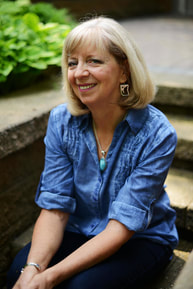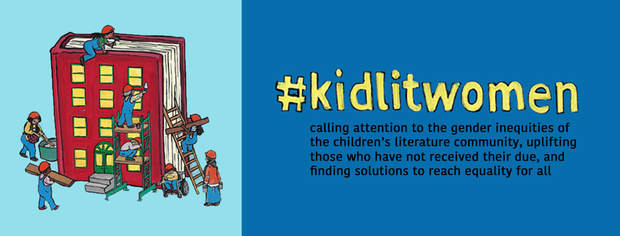
In her great #kidlitwomen essay "How Do I Look: Ageism and Women's Author Photos" Louise Hawes had some thoughts about ageism and how it might affect an older female author's career. One book buyer told her, “From my experience as a buyer, all energy and marketing tends towards young women and men.” Are young women and men writing all the best books then? Or is ageism rearing its ugly head in the publishing world?
Some cultures value age; ours does not, and especially not in women. So women dye their hair, Botox their lips, and surgically alter themselves all in an attempt to appear younger than they are. Most men don’t feel the need to go to these extremes. An aging male TV presenter is acceptable but his female co-host must be young and pretty. Stereotypical representations of aging are often insulting and feed discrimination. Not every older person is a terrible driver, or confused by technology, or permanently befuddled. We don’t all wear dreadful old-fashioned clothes, and we’re not all stooped and shuffling nincompoops with moles and hairs sprouting on our faces. Sadly such representations of aging are often included in children’s books. Writers, please don’t promote these stereotypes. After all, if you’re lucky, you’ll be old one day too. Write strong, vibrant aging characters that reflect the older people I know — people who travel, take university classes, delight in learning new things, run marathons, hike, and march in protest against politics they abhor.
I’d love to know what you think about this. If you have thoughts on ageism and age discrimination in books and the publishing industry, please post them in the comments below.
One final thought: time does not destroy my urge to write. I can still lose my heart to my characters and put their story on a page. As Margarita Engle wrote in her beautiful poem (in her own post for #kidlitwomen):
each year’s crop of fruit
always new”

 RSS Feed
RSS Feed
